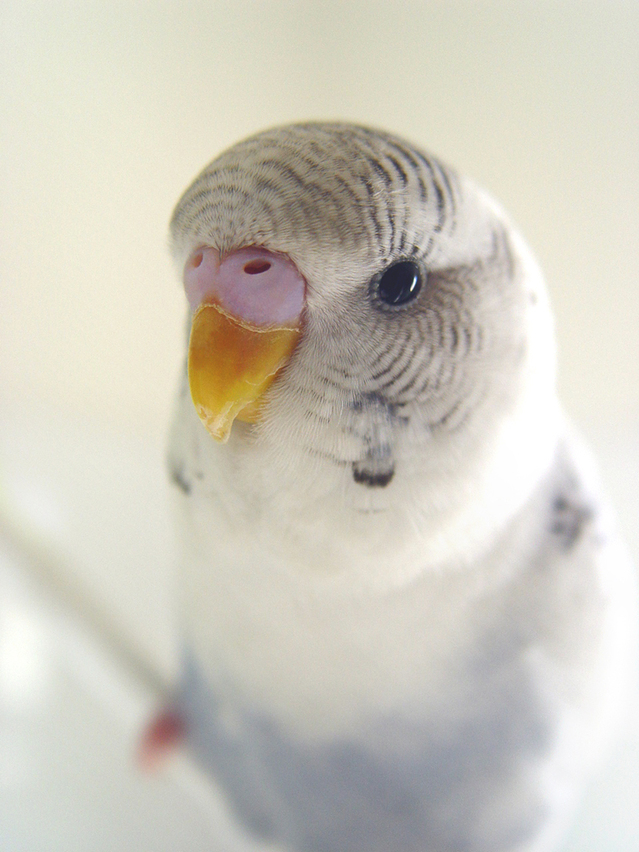
Budgie
Your First Bird
Birds make great pets. With their beautiful colors, wacky personalities, and high intelligence it’s no wonder you’re thinking about bringing home a birdy of your very own! Most people assume that birds are cute and easy caged pets but in reality that’s not the case. Birds, just like any other pet, have a tendency to make a mess, a desire to explore, and will even throw tantrums! So, before you take that final step to bring home a feathered friend, here are some things you’ll need to know.
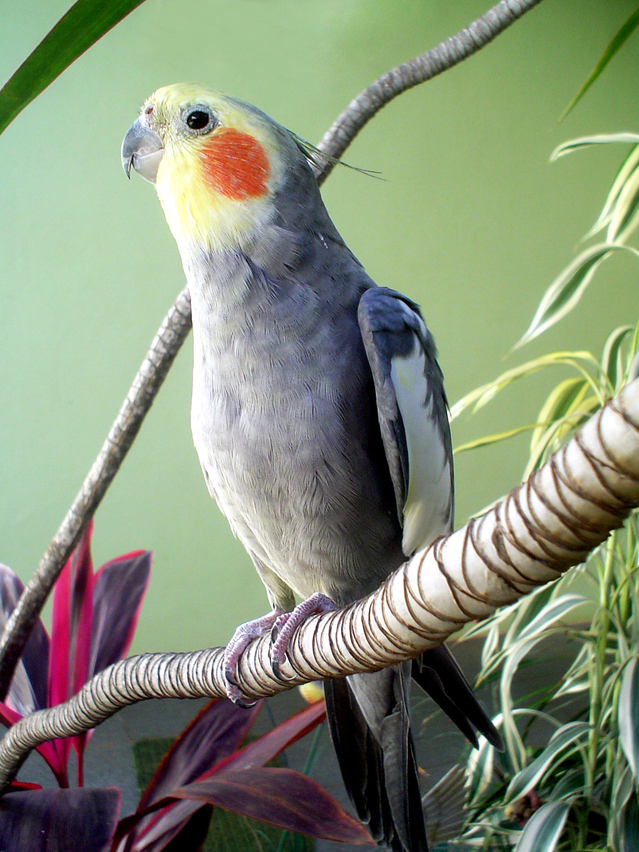
Cockatiel
Bird Species
Did you know that there are currently over 14.3 million pet birds in America? Ranging everywhere from Toucans to pigeons, each different species will have their own special needs that you as their owner will need to meet, so it’s important to research what kind of bird you want before heading down to the local pet store. The top ten most popular species for pet birds are: Cockatiels, African Greys, Conjures, Macaws, Cockatoos, Amazon Parrots, Poicephalus Parrots, Pionus Parrots, and Quaker Parrots. All of these little guys are extremely different from one another, anywhere from size, to loudness, to special needs, so make sure you choose a species that will fit well into your home lifestyle!
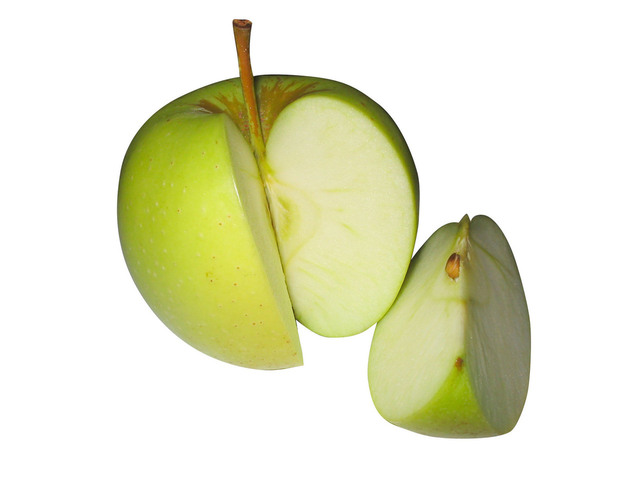
Feeding
Fortunately there are some traits that most bird species share. For example, birds aren’t necessarily caged animals like a hamster or mouse; they need at least two hours of human interaction outside of their cage! And you can’t feed a bird on a seed diet alone! To prevent intestine diseases it’s important to look into the diet of the bird you choose and make sure to compare lots of food brands before deciding on what to feed your bird! I personally feed my bird Zupreem Pellets, because they give him the nutrients he needs!
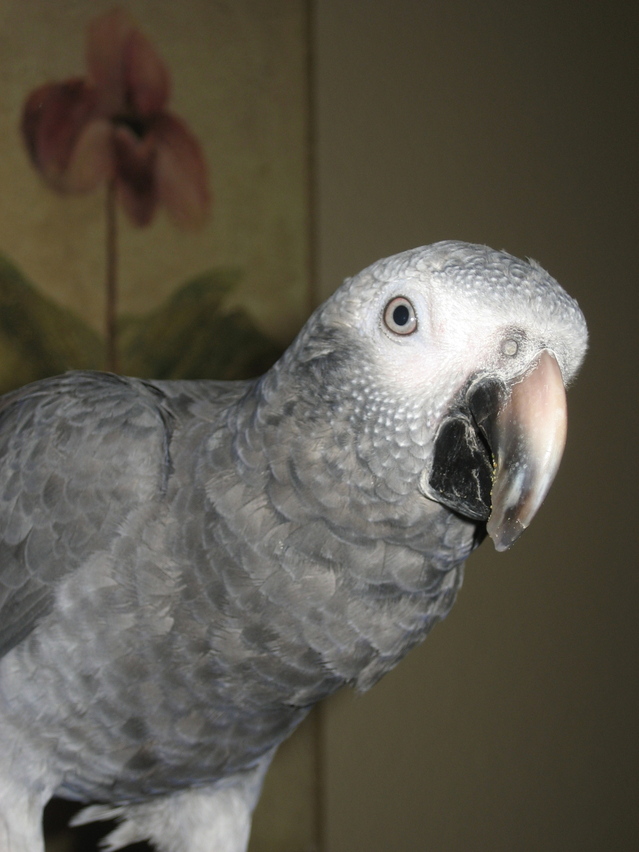
African Grey Parrot
Lifespan
In general, the larger a bird is, the longer its lifespan will be. Cockatoos will live from 50 to 70 years old, and Macaws and African Grays are known to live even past that so before buying make sure that you’re prepared to have your bird for the rest of your life and maybe even past that! This is especially important because birds bond with one human for life! It’s extremely difficult for a bird if you decide that you don’t want it.
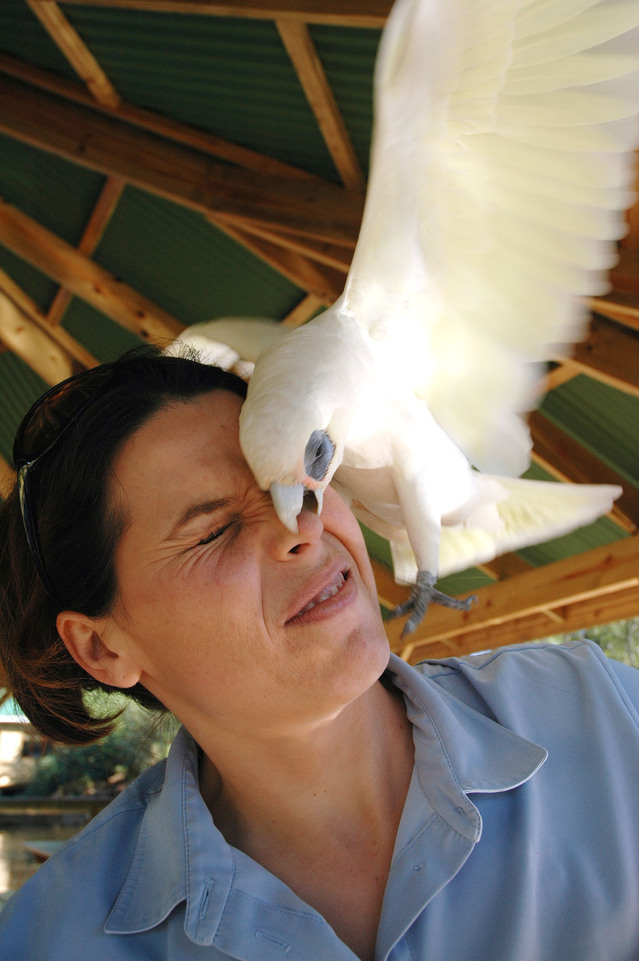
Behavior
Just like puppies, birds have a tendency to bite, and these bites can range from nibbling to being able to break skin. You can easily train your bird to not bite, but keep it in mind for when you first bring Tweety home. Lastly, remember that your emotion will affect your birds. If you’re upset they’ll be upset but when you’re happy you’ll both be happy!
Everyone knows that some birds, such as Parrots, can talk and mimic sounds, making them highly desirable pets. If you do end up with one of these birds remember that, just like a human child, it will take time for them to learn how to speak, starting with basic sounds and slowly becoming more advanced. However, even if not all birds can speak, all of them are definitely loud. Their screeching and yelling can go all hours of the day and night, so make sure you don’t mind a little noise and be sure to read up on how to train your bird to sleep through the night with tricks like the blanket method.
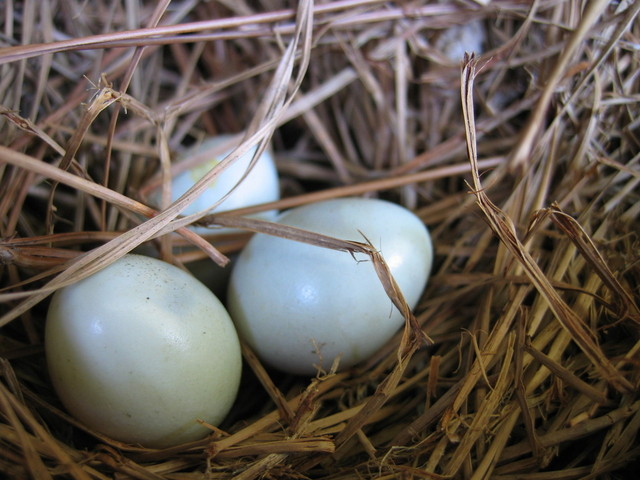
Where to Get Your First Bird
If you still want a little Woodstock of your own, the last thing you’ll need to think of is where to purchase them. First, keep in mind that you’ll most likely be purchasing your bird without knowing its gender, which, in order to determine, you must undergo a $50 dollar DNA blood test. The easiest option is to buy at a local pet store, but the smarter option is to buy from a breeder. Bird breeders commonly hand feed and hand raise the birds, making the bird much more friendly and sociable. They also tend to be less expensive than a pet store, with up to a $400 saving for your pocket. Or, like other animals, you can choose to open your home to a bird with a past, whose previous owner has either abandoned them or passed away.
Now that you know a bit more about what it takes to own a Polly of your own, I hope that you and your new family member fly happily into the sunset!
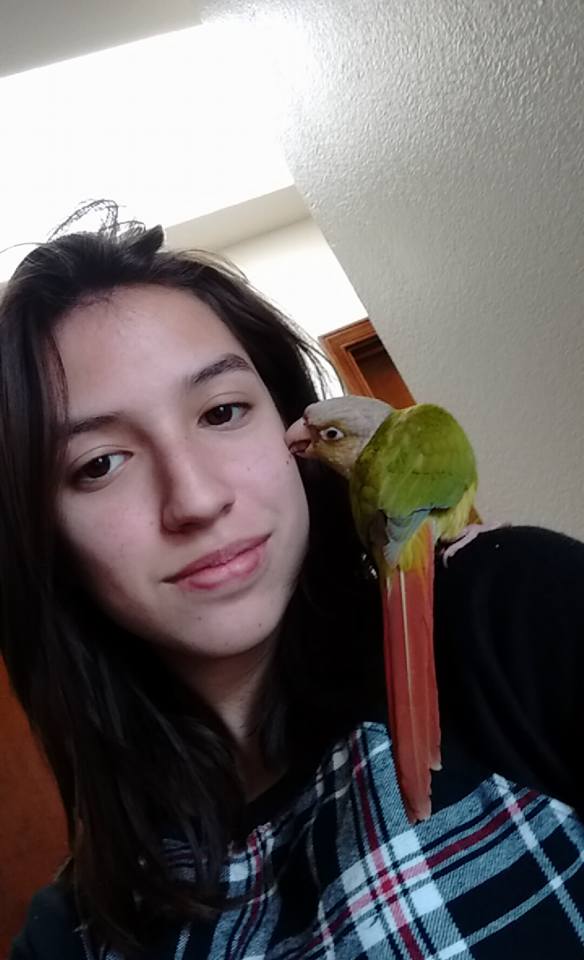
Lillianna Lopez, our Avian Editor, has been studying birds for four years and counting.
Ever since the age of three, Lillianna has been fascinated by animals. In her life she has had Horses, Dogs, Cats, Birds, Guinea Pigs, and the occasional Millipede. Lillianna is known (and often yelled at) for taking in injured birds to try and help them back to health. She adores all animals and always loves to help anyone in need. Lillianna is currently a member of 4-H and participation in the dog project, and bird project.
